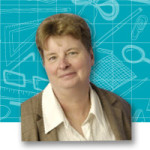 Sue Williamson, Chief Executive SSAT, writes…
Sue Williamson, Chief Executive SSAT, writes…
Why educate? is the title of the first chapter in Dylan Wiliam’s pamphlet – Redesigning Schooling – 3: Principled curriculum design – in which he discusses the purpose of education. Dylan believes there are four broad categories:
- personal empowerment
- cultural transmission
- preparation for citizenship
- preparation for work.
These aims often conflict and the complexities of their interactions are affected by the fast-changing world we live in. This adds to the pressures of designing a school curriculum that meets the needs of its students of all abilities and aptitudes.
But it is vital that schools do grasp their opportunity to design their own principled school curriculum. It has always been a mistaken belief that the national curriculum prescribed what schools were required to teach. As Dylan points out, it ‘specified only what schools were legally required to teach – any school was entirely free to teach whatever it wished in addition’. With the removal of levels and the need to design methods of assessing progress, there is no time to lose on this. Dylan’s pamphlet provides an extraordinarily well-structured vantage point for teachers and leaders to assess how to design their school’s curriculum.
In the media there has been much discussion about the failure of the comprehensive school system, and of schools in general failing students. From some quarters, we even hear calls to reintroduce grammar schools, as if that could take us back to a ‘golden age’ of education. I was a product of that era and it could be argued that my career is proof that the school system worked. This is not my view.
I failed the 11+ and went to an all-girls secondary modern school in Finchley, North London. The school was very clear about its purpose – to prepare us for jobs in shops, offices and nursing before we became wives and mothers. This was reflected in the curriculum – the ‘A stream’, which I was in, did English language and literature, maths, history, geography, RE and PE. The girls in the other streams did not study literature, they did typing instead. We were not considered academically bright enough to study the three separate sciences, so were only allowed to take human biology. Languages were not on the curriculum, although we could take Spanish as an extra after school.
Our other choices focused on needlework and household cookery. I took household cookery at O–level. The course was designed to ensure you had all the skills you needed to produce good food in the home, and it’s true that the skills and knowledge have stayed with me all my life. My school did not have facilities for the practical work, so we had to travel three miles to another school. It was not easy to bring home a roast dinner on the back of a bike!
I had good teachers – some who inspired me to love their subjects. I always loved history, but hated geography as the teacher was so boring. I admit this could well happen today.
What that curriculum did not do was to prepare me to go on to further learning, and it certainly limited my choices. We were not encouraged to think of university – students from my school did not go, and very few went on to A-level. Success for us was to reach O–level – for many in that school the ceiling was CSE (Certificate of Secondary Education).
Rather than go back we need to move forward and redesign schooling.
Today, headteachers have the opportunity to design a principled curriculum – and Dylan Wiliam’s pamphlet is a blueprint for doing so. My recommendation is that all schools discuss the seven principles outlined in the pamphlet and then work on developing a curriculum that prepares their young people for a world that no-one can imagine.

